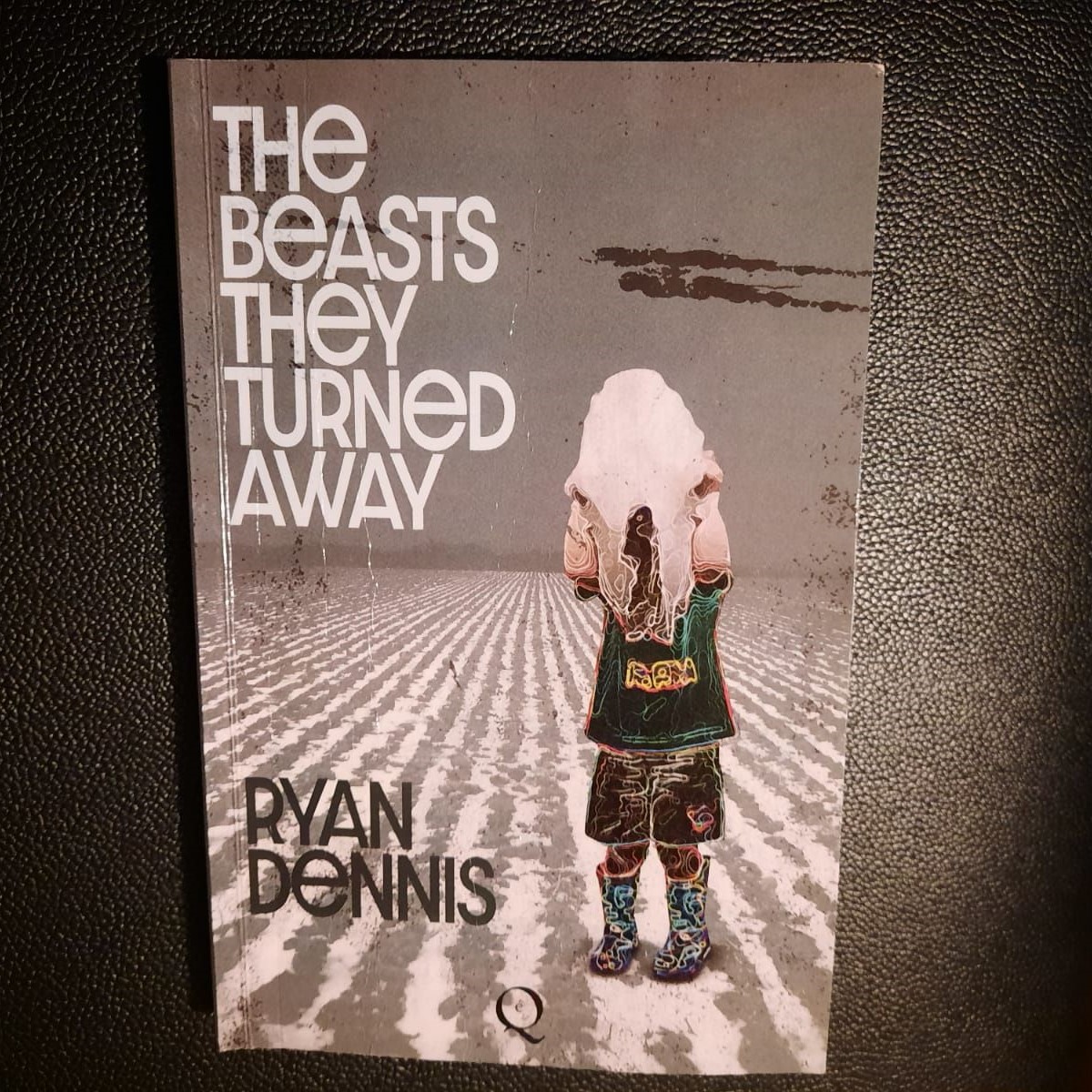reviewed by Chris Richards.
For a book that’s a pretty standard length and steers widely around fantasy territory there is genuinely nothing standard about Ryan Dennis’s debut novel. The Beasts They Turned Away has a forensic insight with an intangible tractor beam of intrigue on every page. An aging Irish dairy farmer, the inexplicable guardian of a mute and (allegedly) cursed child, staunchly refuses to accept the inevitability of modernisation or change and covets his own end. He is initially referred to as ‘the old man’ but the reader learns his name is Íosac Mulgannon from his interactions. The mute boy is never named.
The characters who interact with the old man are described as they relate to him but still leave an impression on the world created in the pages. Much of what makes this novel compelling is how little the reader is told about the history of the community, the chapters show a series of present moments. The imagery is not that of sweeping vistas or technicolour scenes. The images are a series of tightly focussed sepia snapshots with little, if any, peripheral vision.
Each short chapter, none are more than a few pages (the longest is 12 pages, the shortest a few paragraphs) presents a sliver of context, another puzzle piece for the reader to add to the big picture we’re building for ourselves of this odd and traumatized town. The novel feels more like a painted work of art than a linear story. One that requires the viewer to stand back and take it all in to appreciate its magnificence fully. At first glance, the story seems confused, darkly bizarre and, frankly, a lot of effort. But I found that the old man, the mute child with a cow’s skull on his head, and the cows followed me beyond their pages and left me wondering where I’d end up if I just keep reading.
The blurb calls the rural community ‘claustrophobic’ and nothing is plainer from the manner of writing. Every small detail from a pigeon absorbed into the sky to stiff and clumsy leather gloves are close up and sparse outline ready for us to fill. The priest and the community believe the child is cursed and this makes every interaction with them staccato, measured and tense. There are tender scenes of Íosac reading to the child at night which feel calm and act as a respite from the claustrophobia of the rest of world Dennis has created.
This could be quite a challenging read for anyone feeling the pressures and stagnation of lockdown or isolation. Equally, this is not a pulpy, easy read but rewarding, complex and engrossing. There are few to whom this book would not be a departure to an elsewhere, sometimes that is the joy of reading at all. So, definitely worth a punt.
Published by Epoque Press, Thursday, 11 March 2021. Available to buy via the publisher’s website and other good bookstores.

